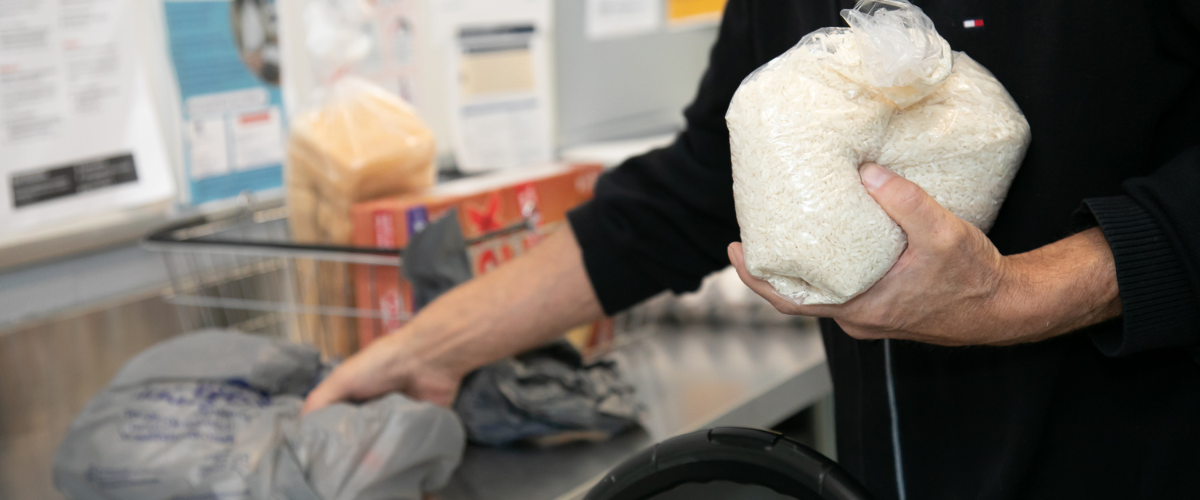
Research demonstrates that when household debts increase, so too does their risk of food insecurity. Daily Bread’s latest report from the Click/Hear program, through which we regularly survey participating food bank clients, explores to what extent food bank clients have debt and how it impacts their lives. Here is what we found:
Food bank clients are carrying significant consumer debt:
More than half (57%) of the survey respondents had consumer debt, while only 4% have mortgage debt. The median consumer debt reported was $8,750. This poses a significant burden given that food bank clients in Toronto have a median monthly income of only $1,131. The most common types of debt reported were from a personal line of credit/personal loan (36%), followed by borrowing from friends or family (15%) and payday loans (11%).
Debt forces food bank clients to make difficult choices:
An alarming 95% of respondents with consumer debt reported that it caused them to turn to a food bank to make ends meet. Half of the survey respondents (50%) had to borrow additional money to repay other loans putting them into a vicious cycle of debt. As one respondent noted, “I was short of cash, so I took out cash money loans. Also, there were times I could not pay my bills cause something else like food came up.”
Repaying debt impacts food bank client wellbeing:
Nearly every respondent (95%) acknowledged experiencing stress sometimes or always about repaying their debts. Given that 88% of respondents reported that their household debt levels have not decreased in the past year, it is likely that this immense stress will continue to be a burden on many food bank clients for the foreseeable future.
The report provides recommendations for all levels of government for how to address the burden of debt among low-income Canadians.
To learn more, click here to read the full report.